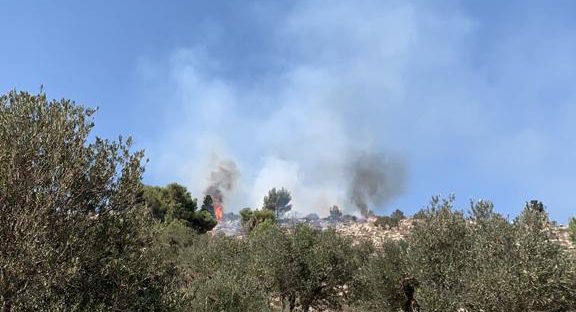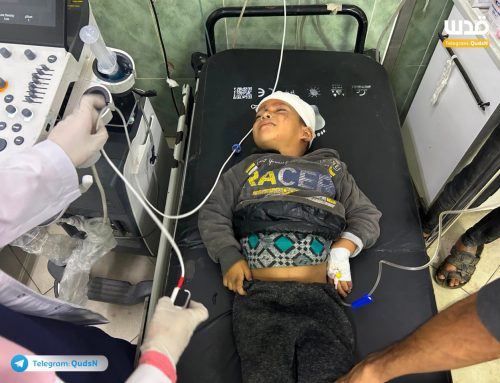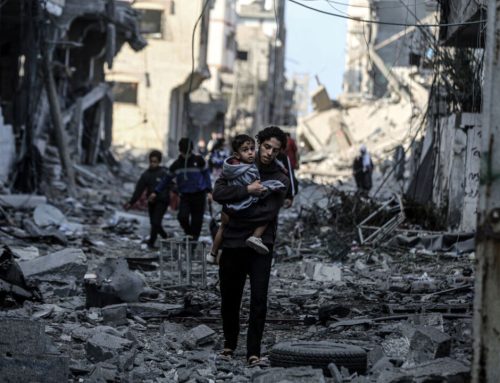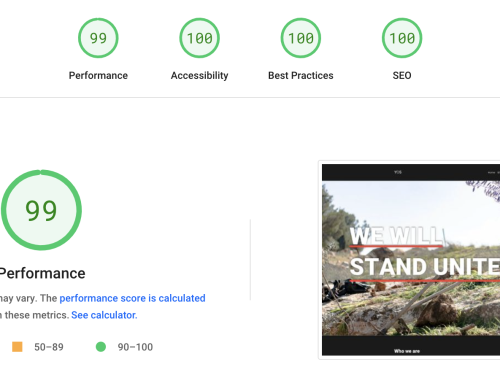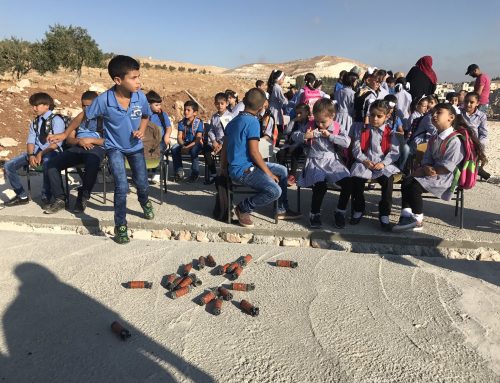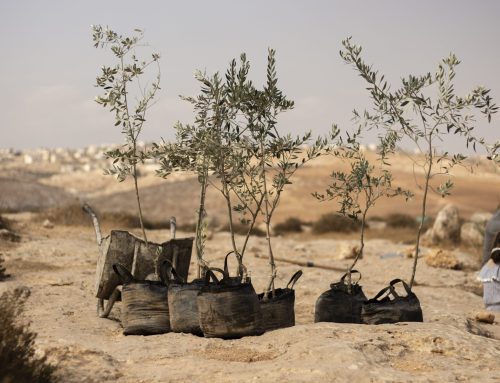Radical Israeli settlers injury 4, fields set on fire in Huwara | 10.7.2020
Palestinians at-risk during olive harvest
On October 7, 2020 two core members of the Good Shepherd Collective headed to the Huwara area of Nablus in the West Bank with members of the South Hebron-based organization Youth of Sumud in order to support the launch of the Faz3a campaign. This campaign highlights the importance of Palestinian unity by drawing on a long history of intercommunity support during challenging periods, including the olive harvest which consists of long, hot, tedious days of work.
Activists and organizers from across the West Bank and Israel gathered in support of private landowners in the Huwara area such as Mahmoud Abu Ehab, harvesting olives in two locations. The first harvest location and our work there was met with relative quiet, and eventually, we moved to the second location in an area called Lihif Huwara, close to the Itzar outpost high up on the hilltop. Minutes after beginning to harvest the olives, settlers, and hilltop youth appeared, threatening the landowner and activists there to provide a protective presence. When Palestinians persisted in the work of harvesting the olives from their own trees, verbally expressing their intentions and disinterest in provoking the settlers, the hilltop youth responded with violence, hurling large stones downhill at activists and targeting older Palestinian men and women.
Ultimately, at least four activists were harmed either by direct hits from the large stones or other forms of physical violence from the settlers. At least one activist ended up in the hospital for his injuries. Once soldiers arrived, they did very little to stop the settlers’ stone-throwing, instead of setting off stun grenades in the direction of activists that ultimately started large fires on swaths of the land and forcing the Palestinians and accompanying activists back down the hill.
The behavior of the soldiers and settlers, as captured in our videos, make several things clear. First and foremost, Palestinian attempts to reclaim their land and fulfill their economic needs will be met with violence–unhinged, potentially fatal acts of violence carried by these organized bands of young men who brag to their followers about their “success,” as we saw only weeks ago.
Furthermore, the military and border police coordinate in order to protect the settler population, never preventing violence against Palestinian civilians but rather deescalating tensions until things like closed military orders can be brought forth, forcing Palestinians to make a choice between further violence–beatings, arrests, and who knows what else–and leaving their land once again.
Then again, it is these moments–tense, yet quiet moments when the soldiers and settlers are on one side and Palestinians and allies on the other, that much of the work gets done. As soldiers awaited the papers to confirm that the area could be closed to civilians, one of the Palestinian elders led by continuing to pick olives, dumping them into a bucket as she patiently explained to a young Israeli soldier that this was privately owned land which never belonged to the local settlers, and that we should be able to carry out our work. Reminding us of the quiet steadfastness with which we continue to move forward despite seemingly endless obstacles, she embodied what we do in these quiet moments in which we reject settler-colonial timelines and roles, refuse to be sucked into anxiety or scared out of action, and simply keep going with what must be done.
As we continue to do the work to move us closer to justice, we know that connecting Palestinians across space and arbitrary legal differences is some of the most important work we can do. It is an honor to stand in solidarity with our partners in the struggle, Palestinian, Israeli, and international alike.
You can learn more about the Faz3a campaign here.
Stay up to date
As we move forward with developing principled programs of resistance and building a broad-based, diverse network of individuals and groups willing to challenge the policies and law that perpetuate the oppression and violence, your material support is essential.
Until the next email, you can like our page on Facebook and make sure that you follow it–and set it to “see first,” so you can stay on top of our updates as we post them. Next, you can find us on Twitter and Instagram. Lastly, take a moment and urge your friends to visit our website, find out more about us and send them a link to our email sign up list.
We need your solidarity
As we continue with this work, we are asking you to join our current “Drive for $5” donation campaign. We are building a model of grassroots mobilization that rejects the restrictive and oppressive models of neoliberal foundations and nation-state aid. We are asking individuals to invest $5 a month to continue this work. You can do that by clicking this link here. If you want to make a larger donation there are other options. If you are a US citizen and want to make a tax-deductible contribution, you can do so through the Alliance for Global Justice by clicking here. If you are in the UK, you can use our partners the British Shalom-Salaam Trust and use GiftAid.
Sign this urgent petition below



